Introduction Curator statements Program notes About the artists Set list
In 2018, while on tour in Croatia, PRISM Quartet members encountered an exhibition about “degenerate music”—a label that the government of Nazi Germany used to vilify music (and people) it considered a threat to Aryan civilization. The exhibition’s centerpiece: a poster depicting “Jonny,” a racist caricature of a Black saxophonist wearing a Star of David on his lapel. The 1938 poster felt horrifyingly contemporary amid rising white nationalism, the online proliferation of anti-Black and anti-Semitic propaganda, and acts of domestic terrorism targeting both groups.
Generate Music began as a response to the raw emotions evoked by this image, but grew into a larger framework. The project transforms the label “degenerate” into a call to generate a new body of music celebrating the endurance, contributions, and intersections of two diasporic peoples.
From the curators
Generate Music was co-curated by PRISM and Helen Haynes, former director of Exhibitions/Programs at the African American Museum of Philadelphia and former director/curator of the Montgomery County Community College Lively Arts Series.
The complex and sometimes fraught history of Black-Jewish relations in America includes episodes of mistrust, conflict, and separatism—as well as fellowship and alliance against racism, anti-Semitism, and injustice.
The relationship between Black and Jewish music(s) is equally complex. Helen notes: “There are formal and cultural qualities that Black and Jewish musical traditions share in relation to their folk roots and their roles in community, from dance music to ritual to the use of virtuosic improvisation.”
The saxophone has long been a bridge between cultures, an idea that increasingly animates PRISM’s programming. For founding tenor saxophonist Matthew Levy, Generate Music is personal. “I grew up Jewish in 1970s Philadelphia, in a majority-Black neighborhood where I still live and direct PRISM. Before studying classical saxophone, I fell in love with the instrument as a teenager playing in neighborhood funk bands. Music was a meeting place. Generate Music’s artists are creating a new way of meeting in this tumultuous era—a reflection of our multifaceted and beautiful humanity.”
About the project’s stakes, Helen wrote: “Music is an emotion that binds all of us. In struggle, sorrow, and pain. In joy, and exaltation. Such is the bond between us, the African American and the Jewish people, and is the narrative of this work. There is a knowing of great suffering and of resolve to overcome. We dwell in the castle of our culture, ancient and modern, reaching for the future. Generate Music addresses myths, hatreds, and stereotypes directed at us and between us, which have built up over time, and been passed along the generations. As the musicians speak to each other, Generate Music heals wounds to celebrate our bond and tell our story.”
Want more information? See our post about what we read and discussed together as we developed this project, or check out excerpts of the world premiere performance (June 8, 2024, World Cafe Live in Philadelphia).
Program notes
Generate Music is not only a commissioning project—it is also a supergroup. Although some artists have collaborated before, June 2024 performances in Philadelphia and Brooklyn marked the full ensemble’s debut—with sounds that are ethereal, funkyfresh, mystical, raucous, somber, joyful, and everything in between.
The program amplifies multiple perspectives and experiences, forming a musical narrative. Pew fellow Ursula Rucker is an interdisciplinary poet, performer, and recording artist whose many collaborators have included Wax Tailor, King Britt, 4hero, and The Roots. In Generate Music, she plays a pivotal role as the conjuror of words, connecting the music to the project’s ideas, questions, tensions, and truths. She describes her own work, Let us gather and all go together, as “a poetic moment of gathering and siphoning…all of US…all of our beings…and stories…and our collective cooperative…great good intentions THEREIN.”
Some composers drew upon personal and family histories to create their works. Diane Monroe’s Ironies takes its title from, in her words, “the ironies of my grandparents attending the services of Black Jewish Rabbi Abel Respes at a synagogue in Philadelphia, after my grandmother’s years of domestic work for Jewish families” and “my own experiences within educational and social segregation, alongside strong bonding between Black and Jewish Americans in my own neighborhood, throughout the civil rights movement, and in
my life-long friendships as an African American with Jewish Americans.” Diane is a Pew Fellow and former first violinist of the Uptown String Quartet and the Max Roach Double
Quartet.
Yotam Haber’s commotio cordis also has personal origins. “I was born in Holland, and grew up in Nigeria, the Ivory Coast, and Israel before coming to Milwaukee, Wisconsin in one of the coldest winters in recorded Wisconsin history, when I was about ten years old. My experiences—especially learning to sing and dance—in those far flung places has had an influence on the way I think about melody, rhythm, and making music communally.” The work’s title is Latin for “agitation of the heart.” Haber describes this as “a condition in which an abnormal heart rhythm and cardiac arrest happens when an object strikes the chest directly over the heart at a critical moment during a heartbeat. I wrote this piece as the conflict in Israel and Gaza unfolded after the October 7th attacks. This work is my attempt at a response to the inexpressible pain and suffering for all the innocent people involved.” Yotam is a Guggenheim Fellow and winner of the Rome Prize.
Other pieces play with the idea of merging musical cultures and ideas—and express a yearning for listening across differences. Composer/pianist Myra Melford collaborated with poet Erica Hunt on When the No Way Stops Short of the Somehow. Myra says the work “centers on the word ‘Zion’ and its significance, its similar and divergent meanings for Jewish and Black communities. Zion symbolically captures the human longing for a home where life can be lived fully, and peacefully. Like many Utopias, Zion is fragile and susceptible to spectacular blindness. For instance, one people’s Utopia can be another’s people’s dispossession. Perhaps, Zion is not even a place, but a figure for a shared planet of generous futures, in which we express our best hopes. The music and the poem come out of a deep listening and attention brought into alignment—languages finding common ground.” Myra is a Guggenheim Fellow whose music “shocks and soothes” (San Francisco Chronicle).
Multi-instrumentalist Tyshawn Sorey contributed a work that he left untitled. The composer wishes the listener to experience the work unbiased by any notes. He/they would much prefer to let the context of the entire program be the only insight the audience has into what they will experience through the music, thusly letting the music speak for itself. Tyshawn is Pulitzer Prize winner and MacArthur Fellow.
Trumpeter, vocalist, and Pew Fellow Susan Watts is the sole living purveyor of an important klezmer dynasty that reaches back to the Jewish Ukraine of the 19th century. Her piece is entitled Convergence. She writes: “To the Jew and to the African American there are important songs and sentiments that define each culture’s tropes. At times, both cultures may have difficulty hearing each other. My composition works toward bridging that gap with musical reciprocity: reimagining the Black National Anthem with Yiddish words and recontextualizing the songs of the synagogue and songs of both people’s culture, awareness, hopes, and struggles to be heard and understood.”
Co-leader of Abraham, Inc., Ancestral Groove, Breath & Hammer, and former member of the Klezmatics, clarinetist/composer David Krakauer describes his piece, The Unknown Common Ancestor, as “representing the need that all human beings have to express themselves. For Jews and African Americans, I see one of the ‘common ancestors’ as the ‘cry’ of supplication reaching towards the divine: from the sound of Armstrong’s or Dizzy’s or Miles’ trumpet or Coltrane, or Bechet’s or Bird’s saxophone to the sounding of the ram’s horn (the shofar) during the Jewish high holy days; from the singing of a cantor in a synagogue to the ecstatic voices in the black church; from the scream of a preacher (or James Brown) to the bittersweet wailing of a klezmer band on a scratchy 78 record. These sounds of supplication all feel like one of the common ‘ancestors’ that Jews and African Americans share. Why ‘unknown’ ancestors? Because human beings as a species often fail to recognize these deep commonalities that we all share, causing our common humanity to become forgotten….and therefore somehow ‘unknown’.”
Fred Wesley, former trombonist/songwriter for James Brown and now for his own bands—Fred Wesley and the New JBs and the funk-klezmer-hip-hop band Abraham, Inc. (co-led with Krakauer and Socalled)—reflects on his Requiem for AJ: “As a staunch believer in peace, I began creating this composition from echoes of klezmer along with the jazz, gospel and blues that make up my personal musical DNA. I intended it as yet another demonstration of my belief that there would be no war if people would only listen to one another. In the middle of writing, a young musician friend named AJ [Al Jahara “AJ Maestro” Hebrew] was killed in an automobile accident. I named it for him to celebrate the ongoing value of musicians, past and present, making and listening to one another’s music instead of just rhetoric.”
About the artists
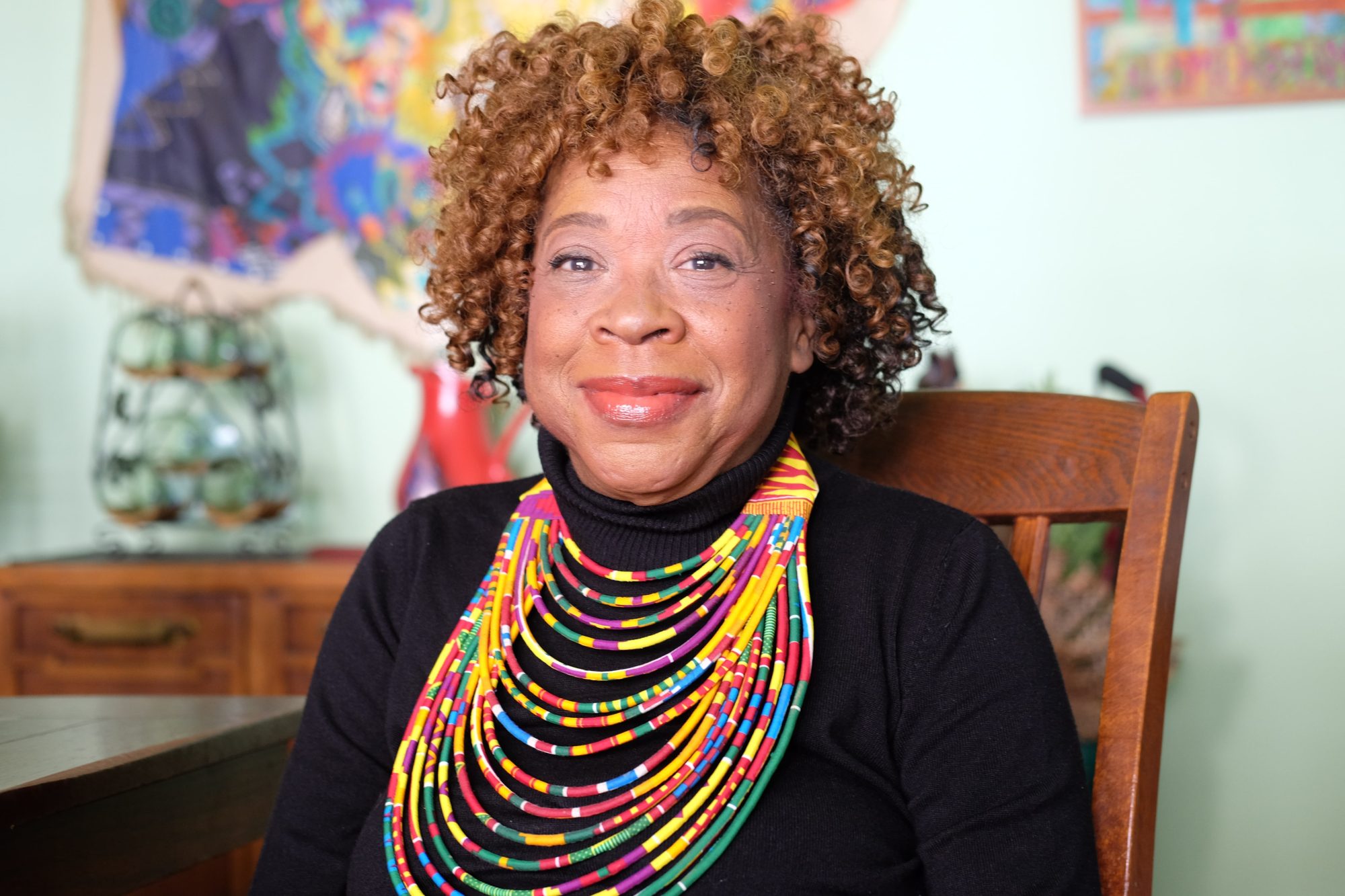
Helen Haynes, co-curator
Helen Haynes (1950–2025) spent the last 40 years as an arts administrator, advocate, and educator and visual artist. Under the administration of Mayor Michael Nutter, she was the Chief Cultural Officer for the City of Philadelphia, Office of Arts, Culture and Creative Economy. During her four years as Director of Exhibitions and Programs at the African American Museum of Philadelphia, she oversaw exhibitions, coordinated related public and educational programs, and developed compelling programs that enhanced the museum’s exhibitions and served its diverse audiences. Prior to joining the OACCE, Helen was the Director of the Office of Cultural Affairs at Montgomery County Community College for thirteen years, curating and directing its popular Lively Arts Series. Here she presented leading performers and musical acts across a wide spectrum of genres and disciplines. Helen also previously served as ED of the Coalition of African American and Latino Cultural Organizations, and Director of the Philadelphia Clef Club of Jazz and Performing Arts. Read more about Helen’s life and legacy at the Philadelphia Inquirer. The Generate Music album and all performances are dedicated to her memory.
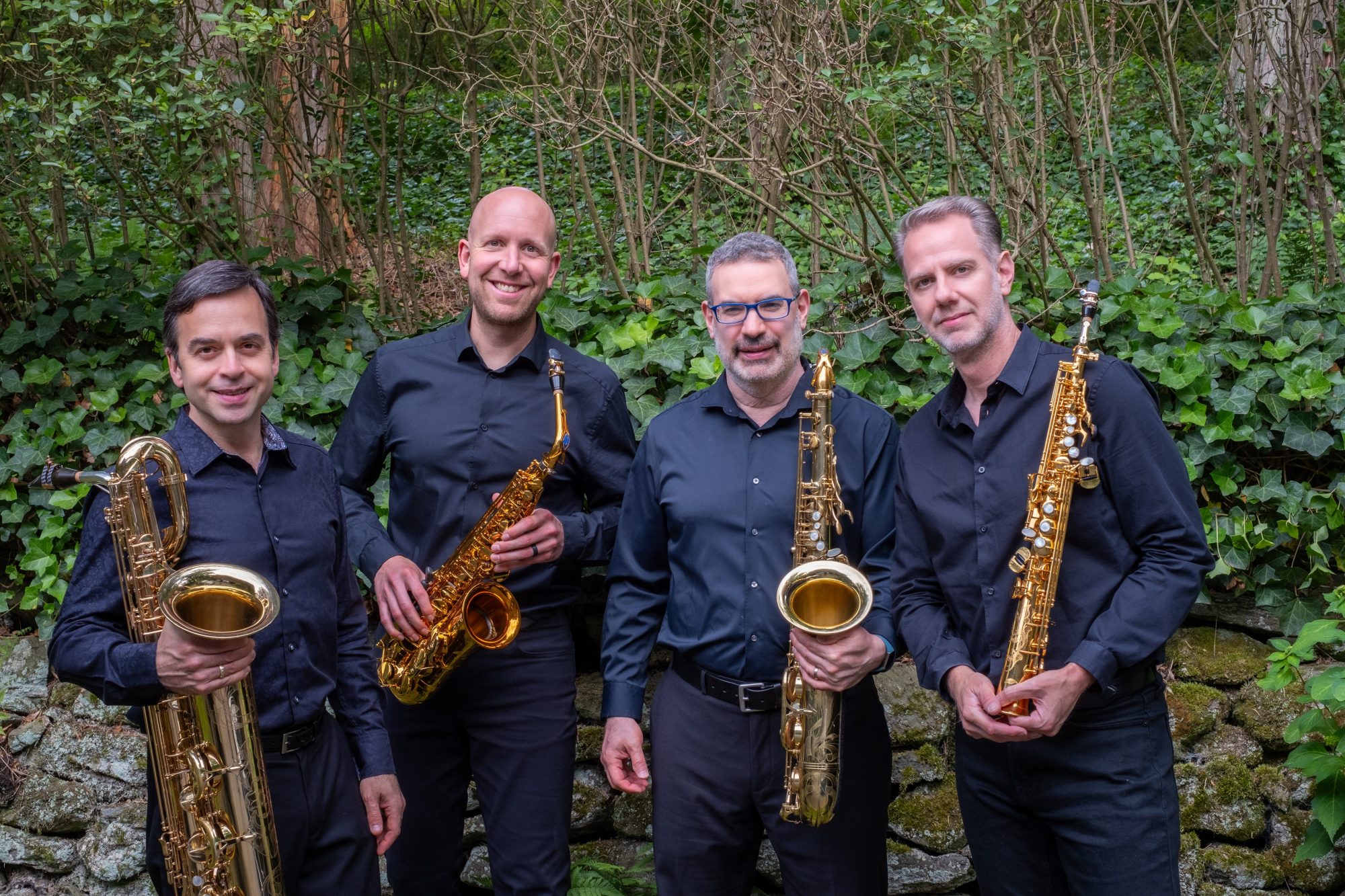
PRISM Quartet, co-curators and saxophone ensemble
Intriguing programs of great beauty and breadth have distinguished the PRISM Quartet as one of America’s foremost chamber ensembles. “A bold ensemble that set the standard for contemporary-classical saxophone quartets” (The New York Times), PRISM has been presented by Carnegie Hall, the Chamber Music Society of Lincoln Center, and throughout Latin America, China, and Russia under the auspices of USIA and USArtists International. PRISM has also appeared as soloists with the Detroit Symphony and Cleveland Orchestra, and conducted residencies at the nation’s leading conservatories, including the Curtis Institute and the Oberlin Conservatory. Two-time recipients of the Chamber Music America/ASCAP Award for Adventurous Programming, PRISM has commissioned over 300 works by eminent composers, including Pulitzer Prize-winners Julia Wolfe, William Bolcom, Jennifer Higdon, Zhou Long, and Bernard Rands; MacArthur “Genius” Award recipients Tyshawn Sorey, Bright Sheng, and Miguel Zenón; and US Artists Fellow Susie Ibarra. PRISM’s discography is extensive, with releases on Albany, BCM&D, BMOP/Sound, ECM, innova, Koch International, Naxos, New Dynamic, New Focus, Orange Mountain Music, and its own label, XAS Records. The Fifth Century, PRISM’s ECM recording with The Crossing, was awarded a 2018 Grammy for Best Choral Performance. In 2016, PRISM was named by its alma mater, the University of Michigan, as the first recipient of the Christopher Kendall Award in recognition of its work in “collaboration, entrepreneurship, and community engagement.” The PRISM Quartet performs exclusively on Selmer saxophones.
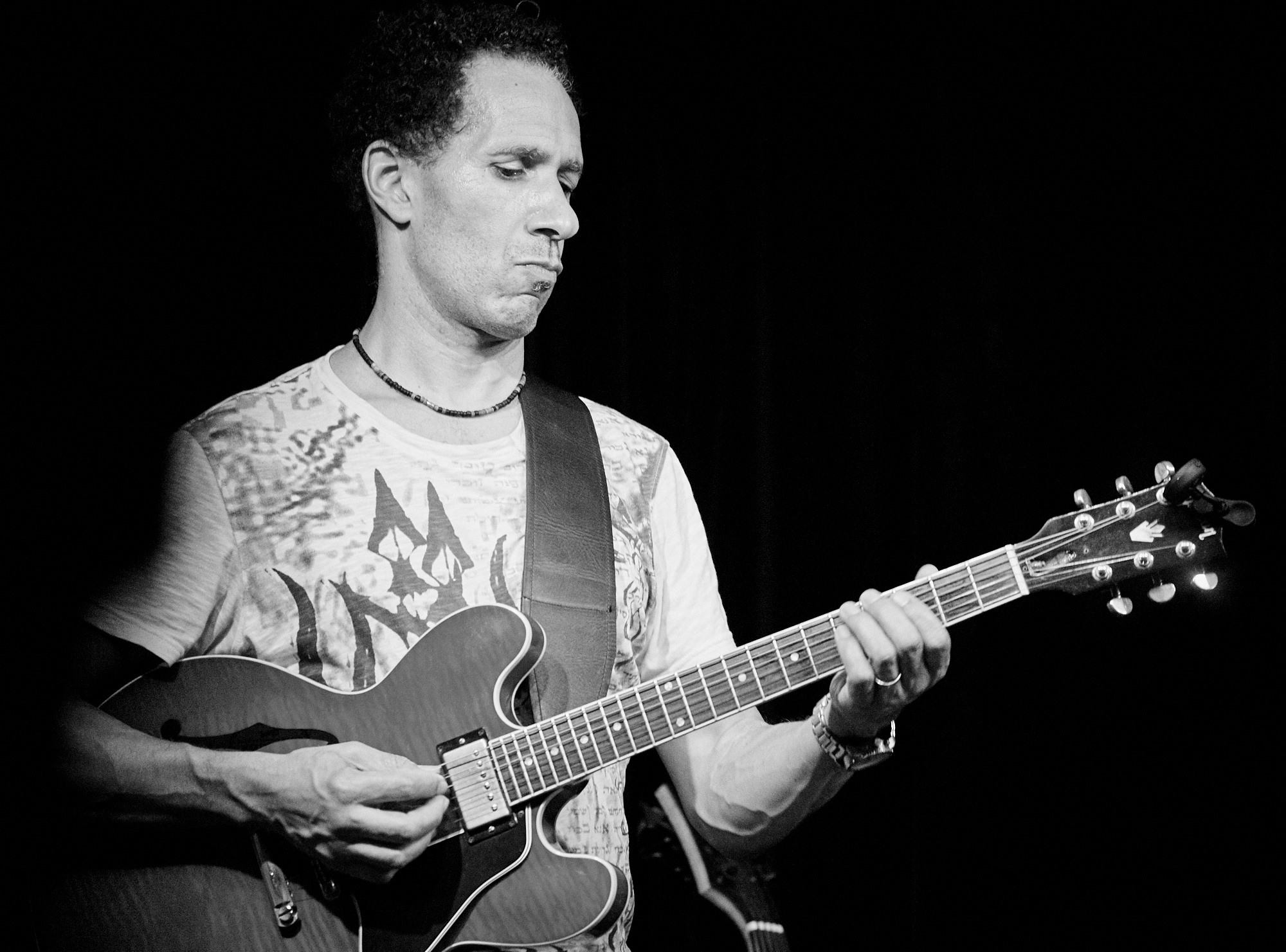
David Gilmore, guest guitarist
David Gilmore has worked with Wayne Shorter, Dave Douglas, Muhal Richard Abrams, Sam Rivers, Steve Coleman, Cassandra Wilson, Don Byron, Uri Caine, Randy Brecker, David Sanborn, Ron Blake, Carolyn Leonhart and Christian McBride, among many others. In addition to his significant presence on the international touring scene, Gilmore has also appeared on over 50 recordings, including two of his own as leader. His first CD, Ritualism (2001) received international critical praise and was nominated for the 2001 Debut CD of the Year by the Jazz Journalists Association.
Born in Cambridge, Massachusetts, Gilmore studied piano, drums and percussion, taking up guitar studies at fifteen with John Baboian and Randy Roos. He left Boston for further studies at New York University where his teachers included sax titan Joe Lovano and pianist Jim McNeely. Following graduation, he worked with a variety of artists, including members of the Mbase Collective, Ronald Shannon Jackson, Trilok Gurtu, Graham Haynes, Robin Eubanks, and Lonnie Plaxico. He also joined the popular jazz/fusion group Lost Tribe, co-producing their first two recordings for Windham Hill.
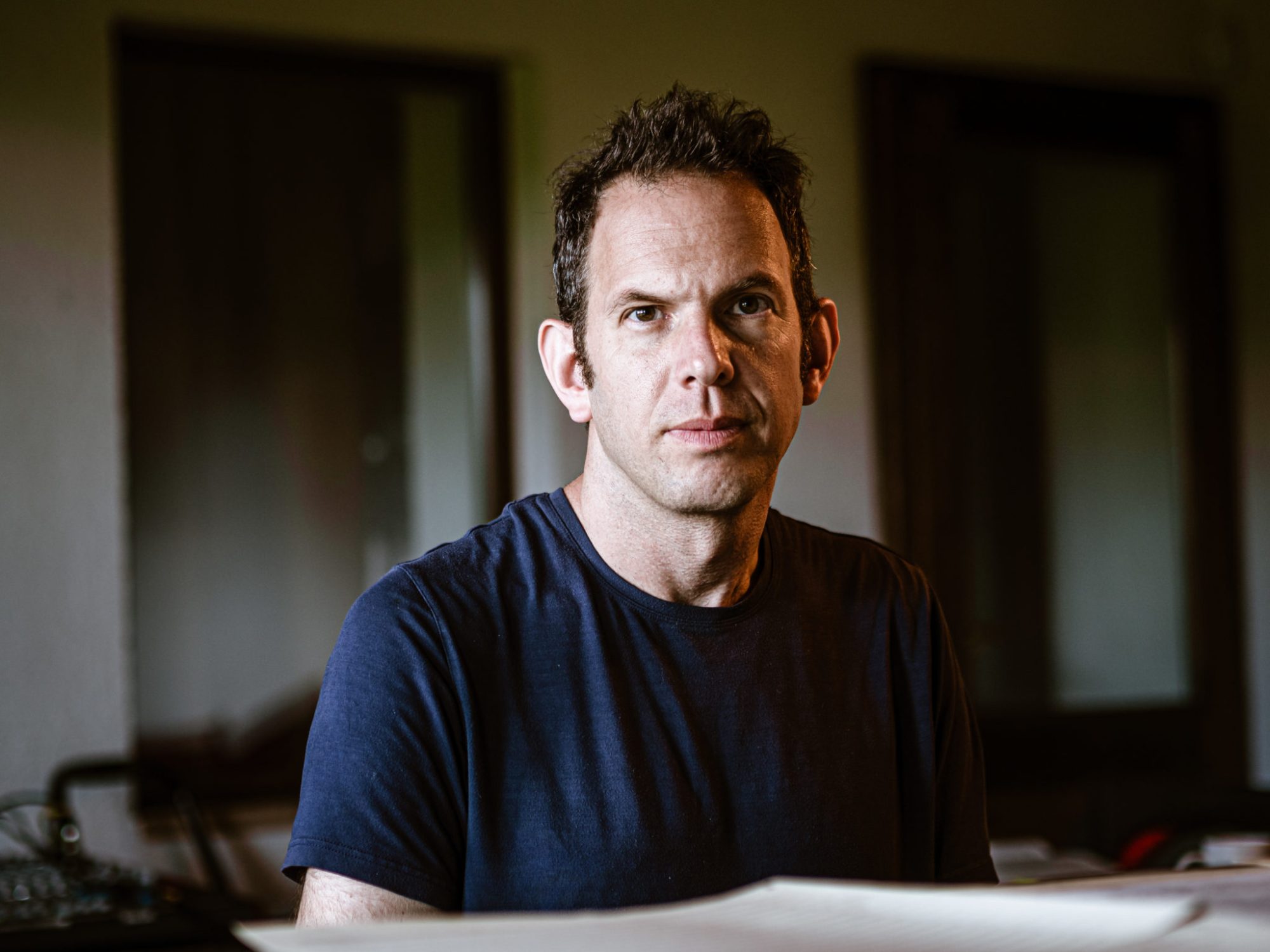
Yotam Haber, project composer
Yotam Haber was born in Holland and grew up in Israel, Nigeria, and Milwaukee. His eclectic catalog includes works for instrumental ensembles, string quartets, choruses, solo voices, and electronics. Since 2008, Haber has been developing a unique corpus inspired by the music of the Jews of Italy, from the age of the ghettos to the 20th century. Thomas May of the New York Times notes that “Since early in his career, [Haber] has grappled with what it means to be a contemporary Jewish composer. The tentative answers offered by his music—full of allusions, distortion and whispers of the past—suggest that the grappling itself is a vital part of that identity.”
Recent commissions include works for Pritzker Prize-winning architect Peter Zumthor; an evening-length oratorio for the Alabama Symphony Orchestra, CalARTS@REDCAT/Disney Hall (Los Angeles); New York-based Contemporaneous, Gabriel Kahane, and Alarm Will Sound; the Venice Biennale; Bang on a Can Summer Festival; Neuvocalsolisten Stuttgart and ensemble l’arsenale; FLUX Quartet, JACK Quartet, Cantori New York, the Tel Aviv-based Meitar Ensemble, and the Berlin-based Quartet New Generation. Haber is Associate Professor of Composition at the UMKC Conservatory, winner of the Rome Prize and a Guggenheim Fellowship.
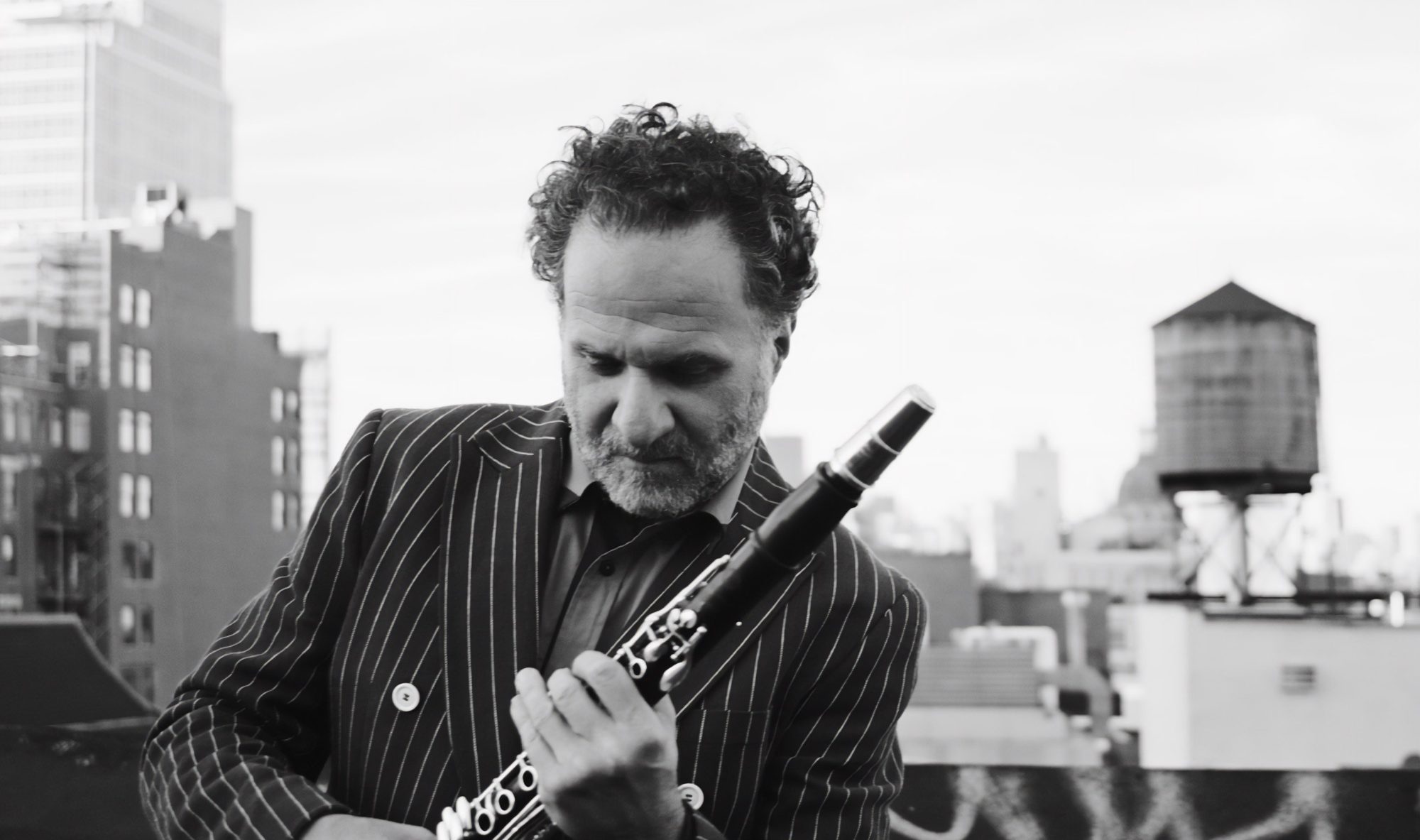
David Krakauer, project composer and guest klezmer clarinetist
David Krakauer is a clarinetist, composer, and bandleader who performs klezmer, jazz, classical music, and avant-garde improvisation. He has been praised internationally as a key innovator in modern klezmer as well as a major voice in classical music. Krakauer began his journey with the music of his Eastern European Jewish cultural heritage at the end of the 1980s as the Berlin Wall was falling, and culture from “behind the Iron Curtain” began to emerge in the West. Inspired by these massive cultural shifts, he began to explore klezmer music as he sought to connect with his Jewish identity in a deeper way. He very quickly became a creator in his own right; first as a member of the ground-breaking band “The Klezmatics” (that launched the second klezmer revival of the early 90s), then as an integral part of John Zorn’s Radical Jewish Culture movement, and ultimately as a composer, soloist, and band leader. His wide array of collaborators include the WDR Big Band, Abraham Inc. (co-led with Fred Wesley and Socalled), the Emerson Quartet, Marin Alsop, Wlad Mathulets, Leonard Slatkin (Orchestre de Lyon), Nadja Salerno-Sonnenberg, Quatuor Debussy, JoAnn Falletta, George Tsontakis, and Anakronic Electro Orkestra.
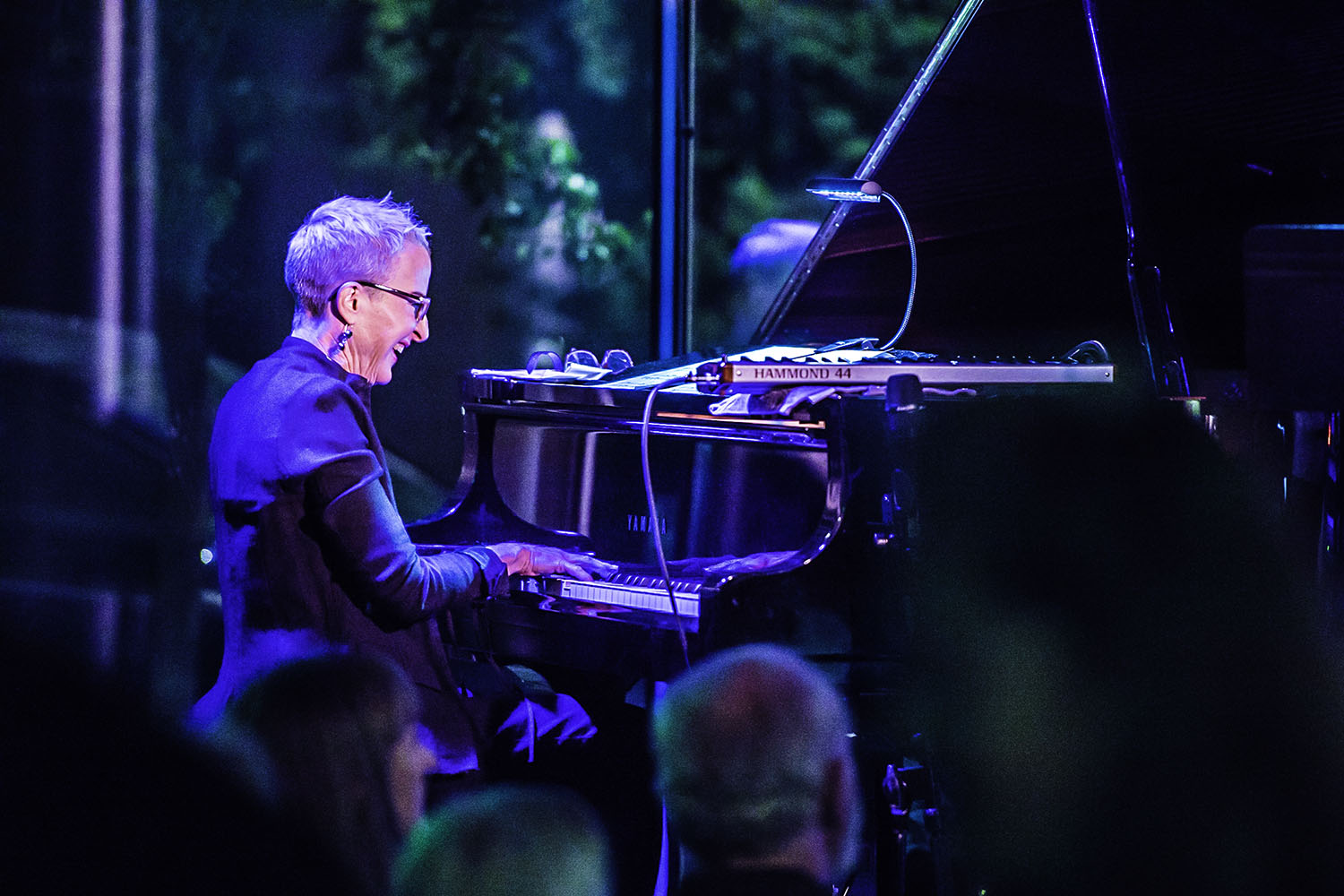
Myra Melford, project composer
Pianist, composer, bandleader and educator Myra Melford—whom the New Yorker called “a stalwart of the new-jazz movement”—has spent the last three decades making original music that is equally challenging and engaging. Culling inspiration from a wide range of sources including Cecil Taylor, the blues and boogie-woogie of her native Chicago, the poetry of Rumi, the AACM and yoga, she’s explored an array of formats, among them ruminative solo-piano recitals, deeply interactive combos and ambitious multidisciplinary programs. Since debuting on record as a bandleader in 1990, she’s built a discography of more than 20 albums as a leader or co-leader, and has collaborated with such luminaries as Dave Douglas, Marty Ehrlich, Liberty Ellman, Erik Friedlander, Ben Goldberg, Joseph Jarman, Leroy Jenkins, Ron Miles, Nicole Mitchell, Tyshawn Sorey, Chris Speed, Stomu Takeishi, Cuong Vu and the Jazz at Lincoln Center Orchestra. Her teachers and mentors include Butch Morris, Henry Threadgill, Jaki Byard, and Don Pullen. She is Professor of Composition and Improvisational Practices in the music department at the University of California, Berkeley. She is the recipient of a Fulbright Scholarship, Guggenheim Fellowship, and a Doris Duke Impact Award.
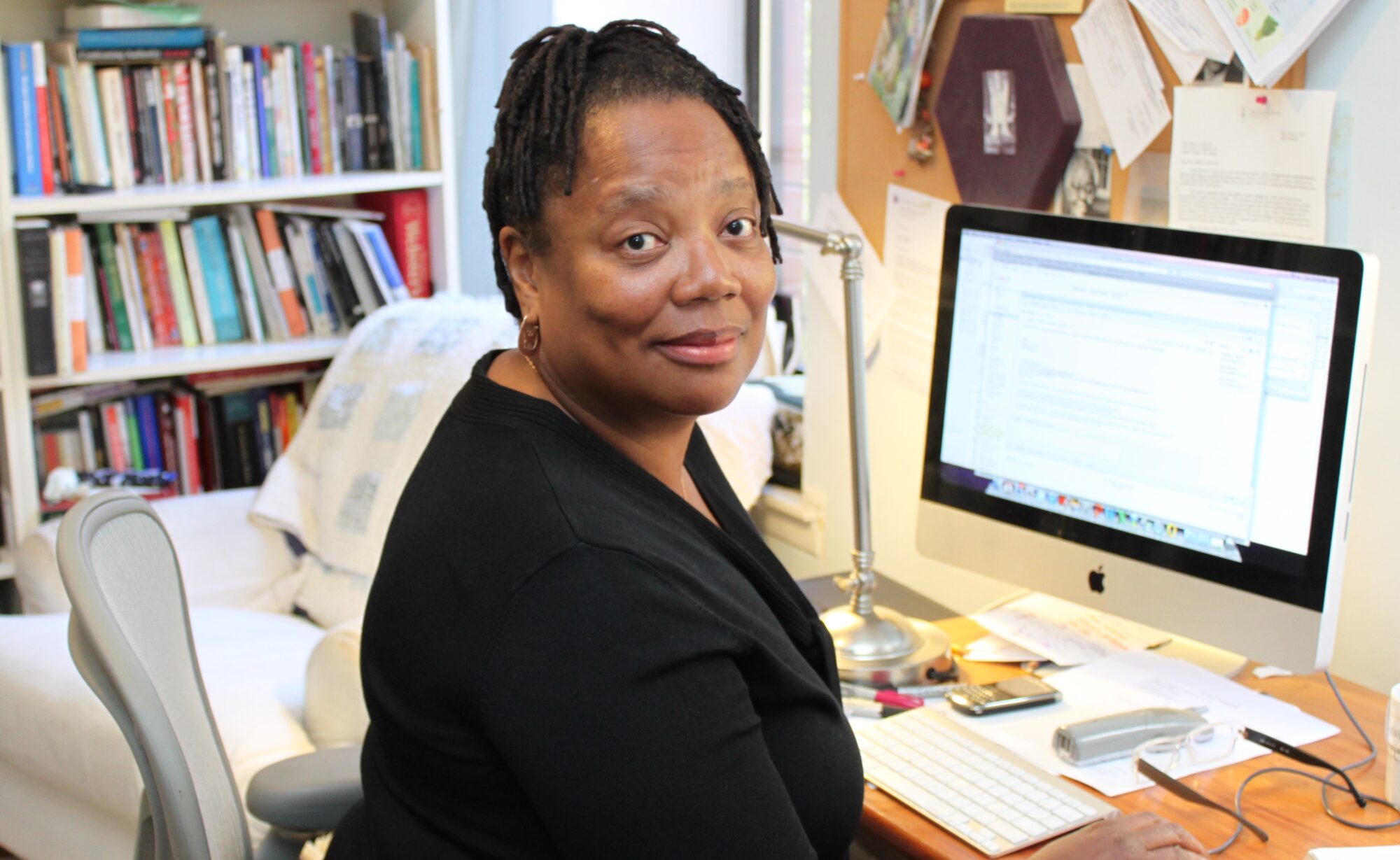
Erica Hunt, Myra Melford collaborator
Erica Hunt is a poet, essayist, and author of Local History, Arcade, Piece Logic, Time Flies Right Before the Eyes, A Day and Its Approximates, Veronica: A Suite in X Parts, and her newest work Jump The Clock: New and Selected Poems. Her poems and non-fiction have appeared in BOMB, Boundary 2, The Brooklyn Rail, Conjunctions, The Los Angeles Review of Books, Poetics Journal, Tripwire, FENCE, Hambone, and In The American Tree, among other publications. Essays on poetics, feminism and politics have been collected in Moving Borders, Three Decades of Innovative Writing by Women and The Politics of Poetic Form, The World, and other anthologies. With poet and scholar Dawn Lundy Martin, Hunt is co-editor of the anthology Letters to the Future, Black Women/Radical Writing from Kore Press.
Hunt has received awards from the Foundation for Contemporary Arts, the Fund for Poetry, the Blue Mountain Center, and the Djerassi Foundation, and is a past fellow of Duke University/the University of Capetown Program in Public Policy and a past Fellow at the Center for Programs in Contemporary Writing in Poetics and Poetic Practice at the University of Pennsylvania. Currently, Hunt is Bonderman Visiting Professor at Brown University.
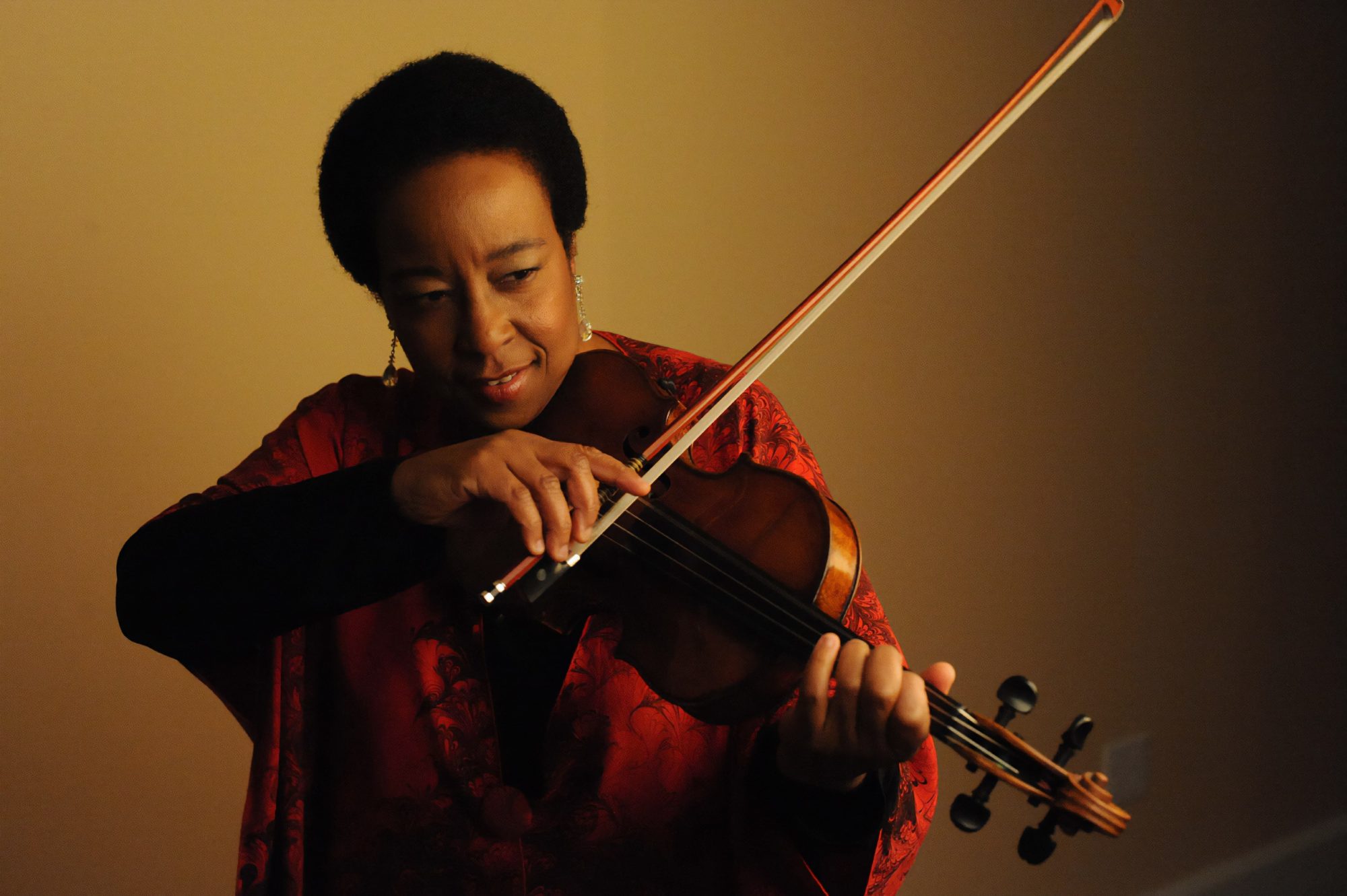
Diane Monroe, project composer and guest violinist
Diane Monroe bridges classical string repertoire, jazz and blues improvisation, African and African American musical traditions, and contemporary experimental music. Her cross-genre work has included engagements with artists and groups such as Bobby Zankel, Odean Pope, and John Blake; the Max Roach Double Quartet; Harlem Symphony Orchestra; and Bang on a Can All Stars. Monroe has been leading her own ensembles for more than 15 years, including The Diane Monroe Quartet and a duo with her longtime musical partner, vibraphonist Tony Miceli, with whom she released the album Alone Together in 2014. Monroe is a Philadelphia native and graduate of the Curtis Institute of Music and University of the Arts. She has taught at Oberlin Conservatory of Music, Swarthmore College, Lehigh University and Temple University. Monroe is a recipient of a Pew Fellowship in the Arts.
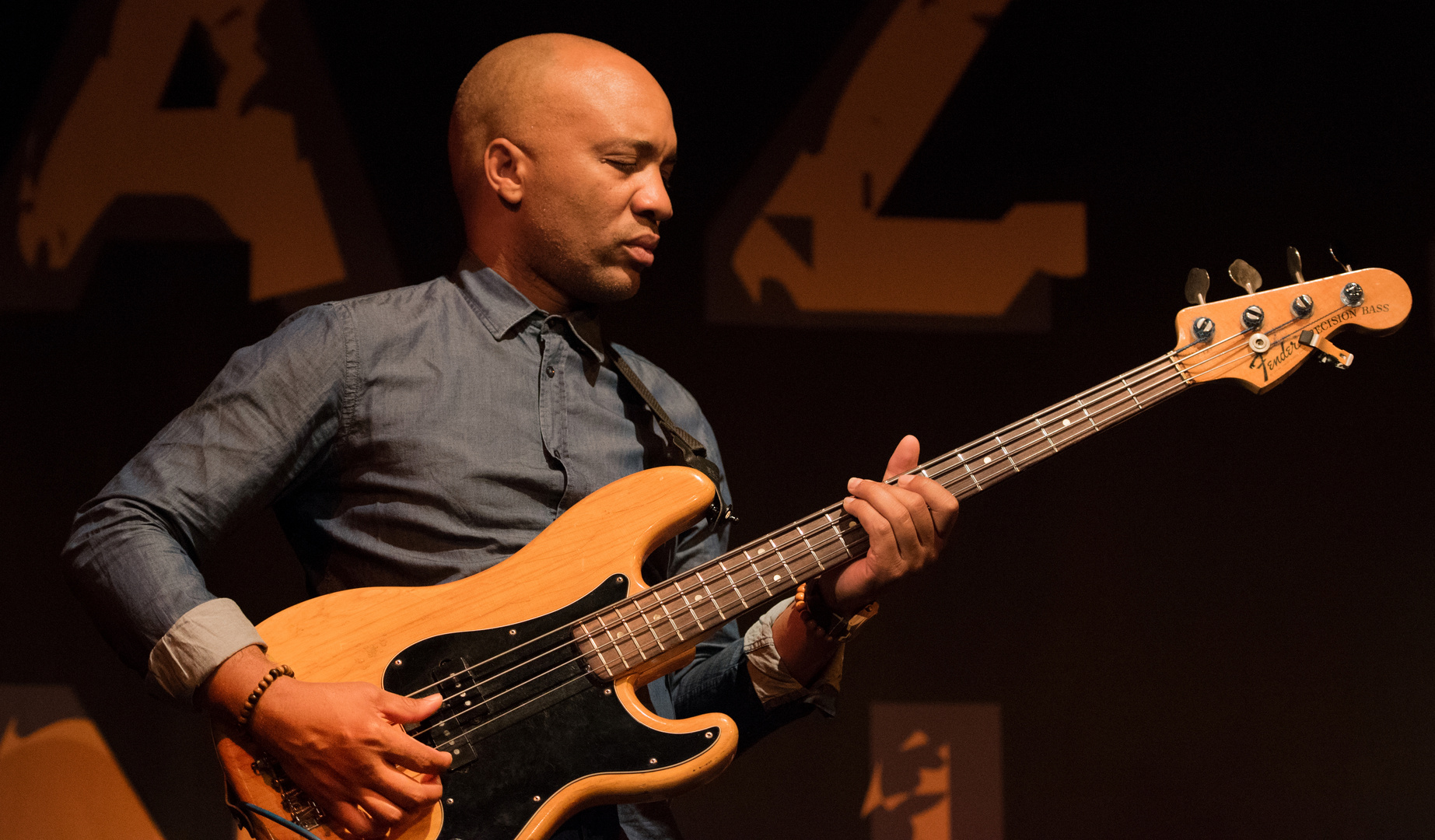
Reuben Rogers, guest bassist
Imbued with groove and spirit from birth, Reuben Rogers combined the calypso and reggae rhythms of his native Virgin Islands with the gospel sounds of the church and the freedom and improvisation of jazz to create the unique chemistry that would make him one of the most distinctive and in-demand bassists in modern jazz.
Rogers’ mastery of both the acoustic and electric bass has led to opportunities alongside some of the music’s most renowned artists, including Charles Lloyd, Wynton Marsalis, Joshua Redman, Tomasz Stanko, Marcus Roberts, Nicholas Payton, Mulgrew Miller, Jackie McLean and Dianne Reeves, among countless others. Over the last two decades, he’s been featured on more than 100 recordings and countless international tours. A graduate of Berklee College of Music, Rogers gives back with numerous workshops, clinics, and master classes around the world.
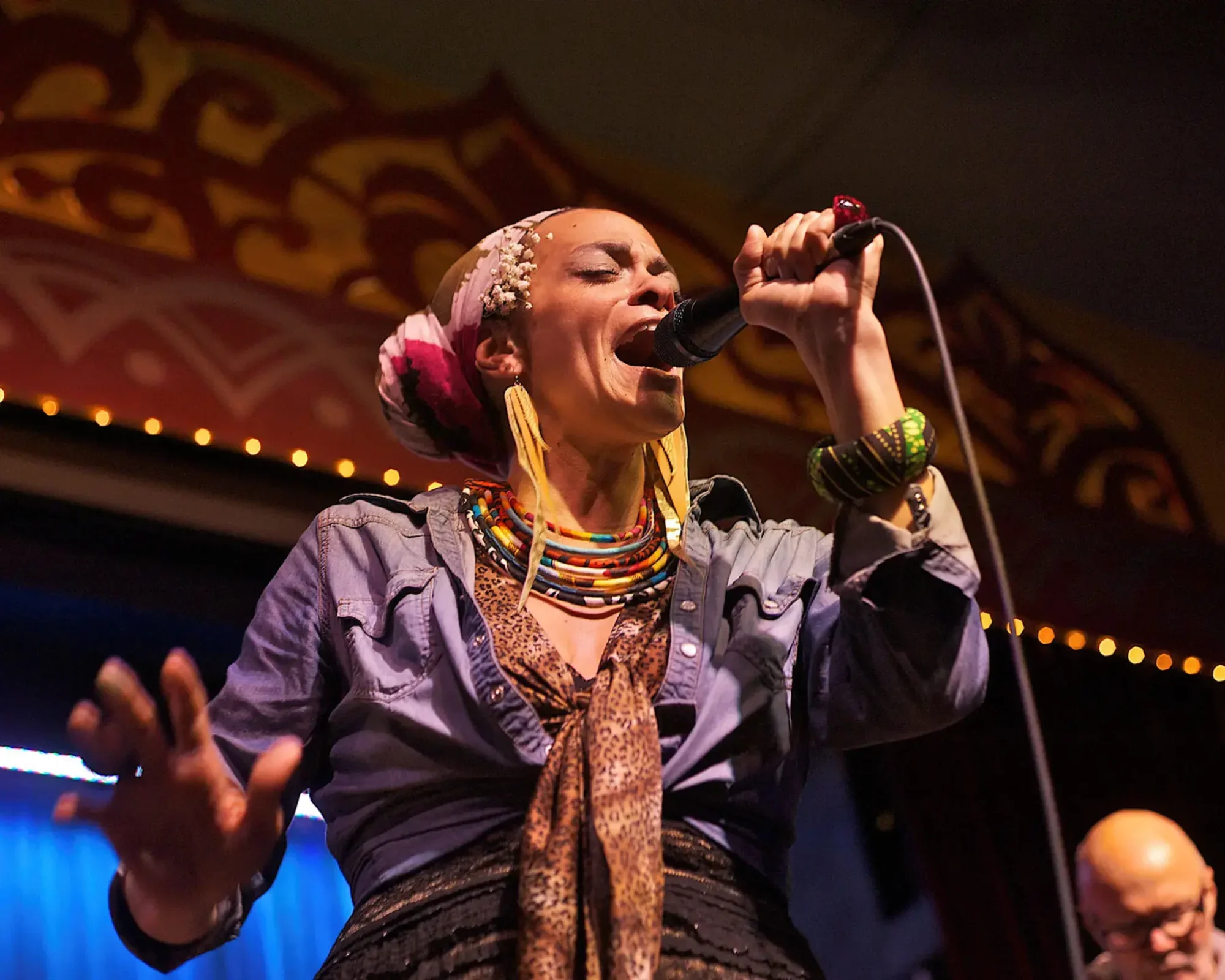
Ursula Rucker, project composer/poet, and guest vocalist
Ursula Rucker is a poet, performer, and recording artist who has inspired listeners around the world for nearly three decades. She is a Philadelphia native and graduate of Temple University’s school of journalism. She has collaborated with musical artists King Britt, The Roots, 4Hero, Jazzanova, Louie Vega, Doodlebug of Digable Planets, Jamaaladeen Tacuma, and more—as well as Pulitzer Prize-winning photographer Clarence Williams III. She recently contributed to Aṣẹ: Afro Frequencies, an immersive and interactive digital art exhibit created by ARTECHOUSE in collaboration with Vince Fraser, a London-based Afro-surrealist digital artist and illustrator. About her practice, she writes “I stand for poetry as a source of profound truth. That truth, for me, is connected to the idea that cities are places that redeem our strivings and leave us longing; the ways family life shapes and shakes us, and brings us back; and the thought that artists safeguard stories and struggles.” Rucker is a recipient of a Pew Fellowship in the Arts.
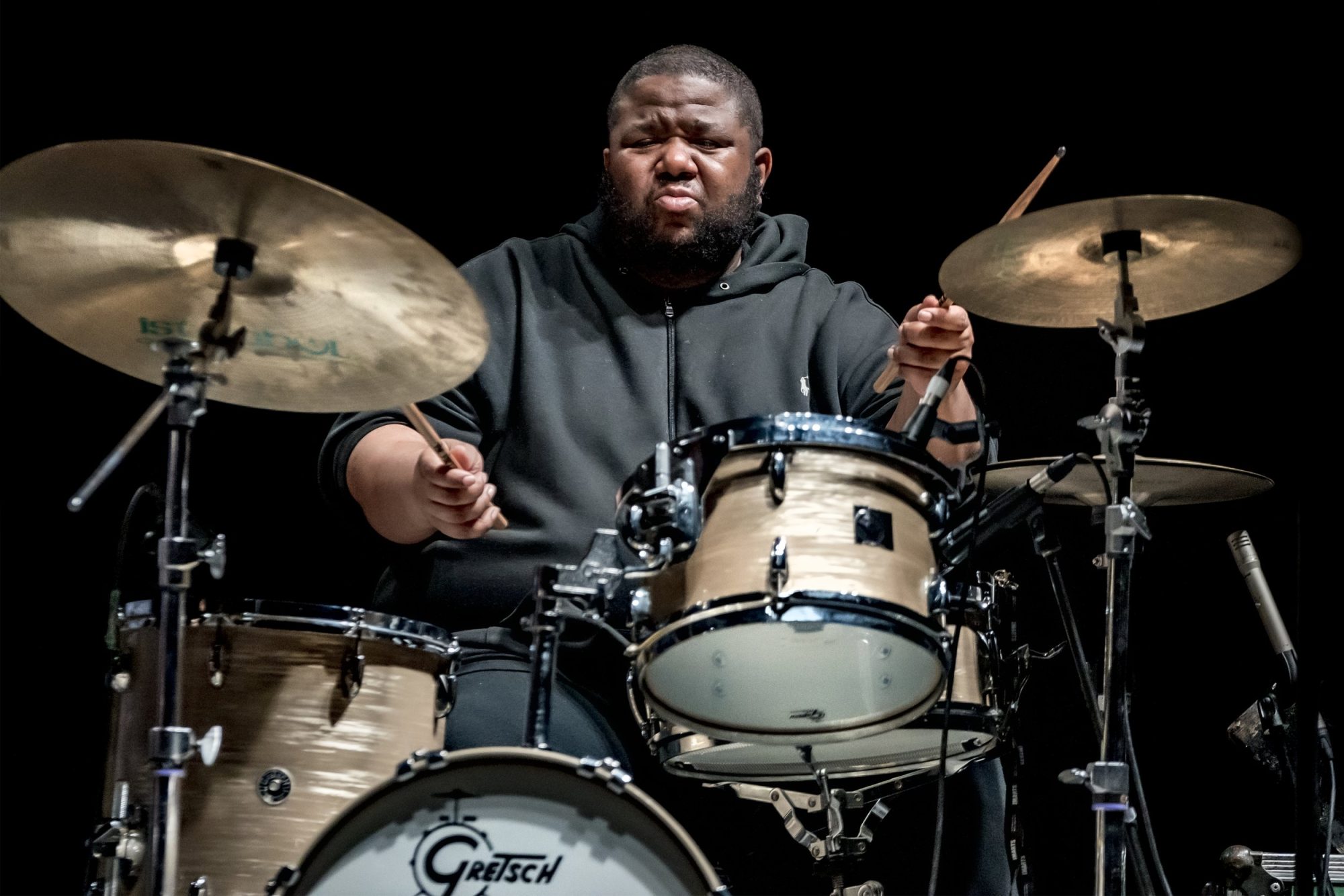
Tyshawn Sorey, project composer and guest percussionist
Newark-born composer and multi-instrumentalist Tyshawn Sorey is celebrated for his incomparable virtuosity, effortless mastery and memorization of highly complex scores, and an extraordinary ability to blend composition and improvisation in his work. He has performed nationally and internationally with his own ensembles, as well as artists such as John Zorn, Vijay Iyer, Roscoe Mitchell, Muhal Richard Abrams, Wadada Leo Smith, Marilyn Crispell, George Lewis, Claire Chase, Steve Lehman, Jason Moran, Evan Parker, Anthony Braxton, and Myra Melford, among many others. The New Yorker’s Alex Ross described him as “among the most formidable denizens of the in-between zone…An extraordinary talent who can see across the entire musical landscape.” Sorey has composed works for the Los Angeles Philharmonic, the International Contemporary Ensemble, soprano Julia Bullock, PRISM Quartet, JACK Quartet, TAK Ensemble, the McGill-McHale Trio, bass-baritone Davóne Tines, Alarm Will Sound, the Louisville Orchestra, and tenor Lawrence Brownlee with Opera Philadelphia in partnership with Carnegie Hall, as well as for countless collaborative performers. He is the recipient of a MacArthur Fellowship and Doris Duke Impact Award. He is Presidential Assistant Professor of Music at the University of Pennsylvania, where he also teaches in the department of Africana Studies.
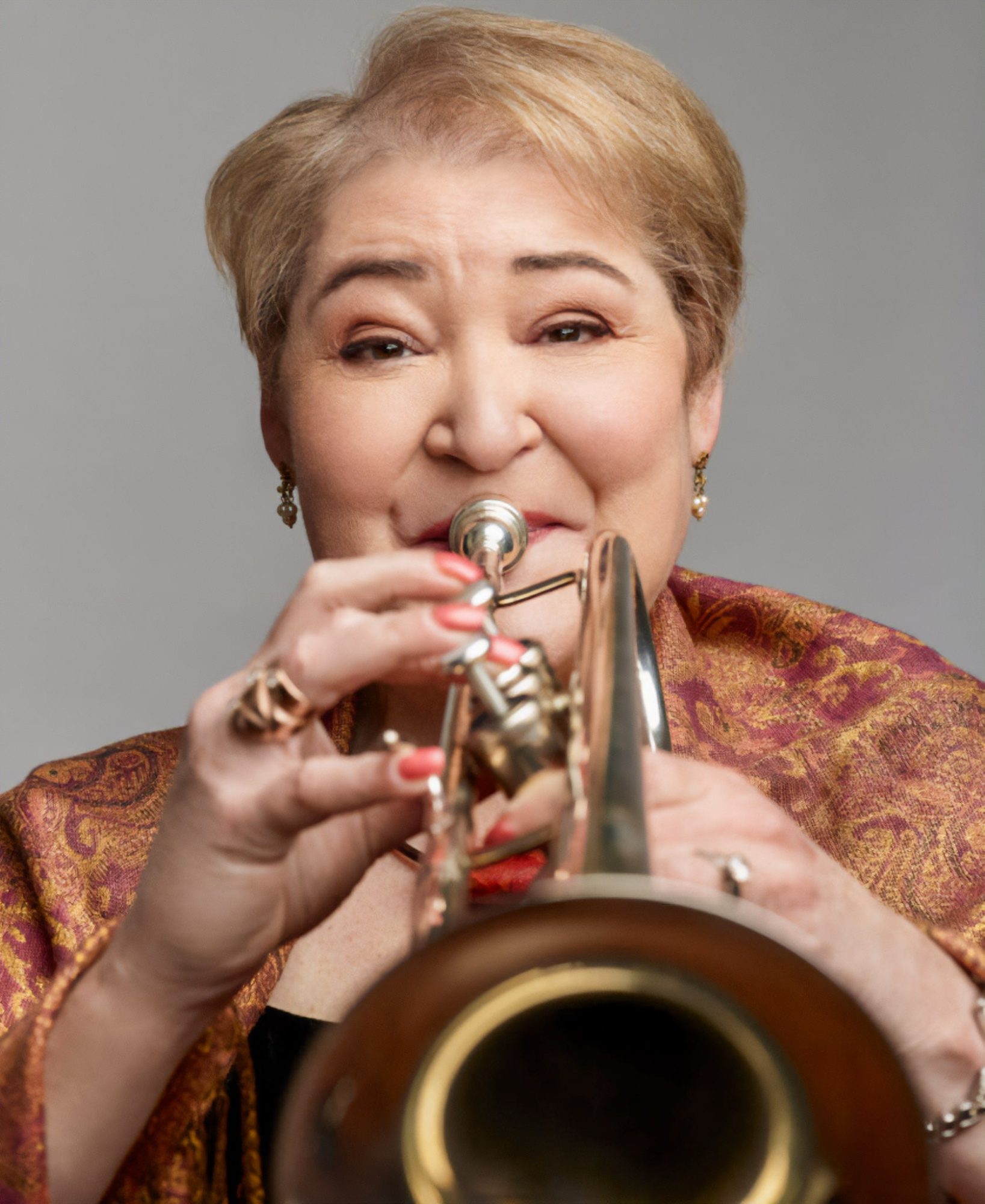
Susan Watts, project composer and guest trumpeter/vocalist
Susan Watts represents the youngest generation of an important klezmer dynasty that reaches back to the Jewish Ukraine of the 19th century, beginning with her great-grandfather, musician, composer, cornet-player, and poet, Joseph Hoffman. Susan is the sole living purveyor of the family’s traditional klezmer-style trumpet sounds which electrified audiences for decades. In addition to playing with a variety of noted klezmer musicians from around the world, Watts has recorded, performed, and sang with Frank London’s Klezmer Brass All-Stars, Henkus Netsky, The Klezmatics, So-Called, and more. Susan also has performed with her mother, the great klezmer drummer Elaine Hoffman Watts, in their Philadelphia-based group, the Fabulous Shpielkehs. Her contribution to the present day landscape of klezmer includes using klezmer as an agent for social change and bringing its traditions into the future. Susan is a recipient of a Pew Fellowship in the Arts.
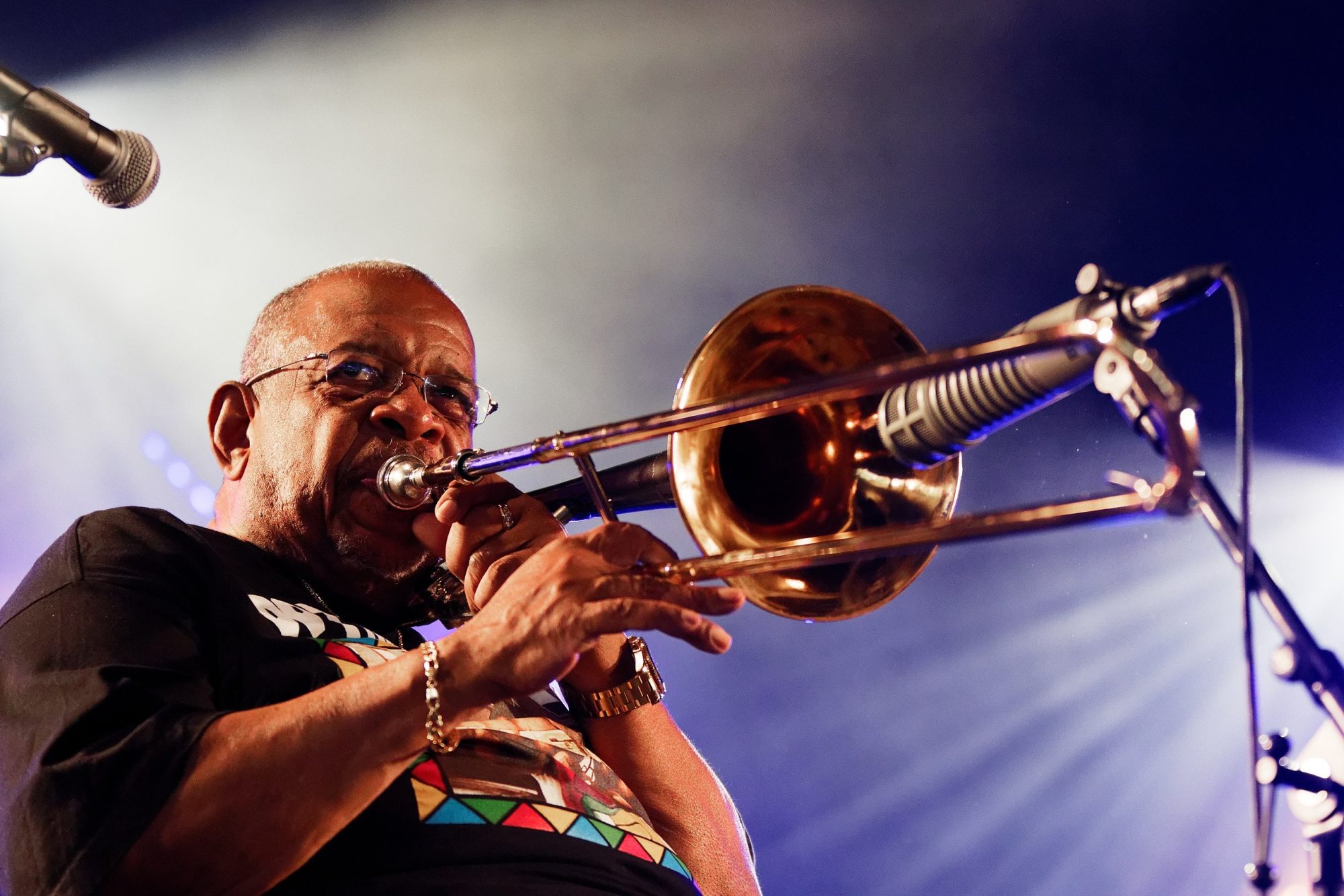
Fred Wesley, project composer
Bandleader, trombonist and author Fred Wesley is one of the forefathers of funk still setting the standard with his jazz-funk band The New JBs. Fred began his career as a teenage trombonist with Ike and Tina Turner. He later was music director, arranger, trombonist and a primary composer for James Brown from 1968–1975, then arranged for and played with Parliament-Funkadelic and Bootsy’s Rubber Band. With Brown, Fred became “the world’s most famous sideman, orchestrating the sinuous grooves and contributing the bold, surgically precise solos that defined the language of funk.” He helped take funk to the next level with George Clinton and Bootsy Collins. Fred has recorded a dozen solo albums including the cult favorite “House Party,” is featured in the Oscar-winning documentary “When We Were Kings” and countless other documentaries and books about the funk, and gives master classes around the world. Also a veteran of the Count Basie Orchestra, Fred has worked with scores of other artists, from Ray Charles to Russell Gunn. His current projects include the organ trio Generations, and collaborations with the klezmer-funk-hip hop unit Abraham Incorporated.